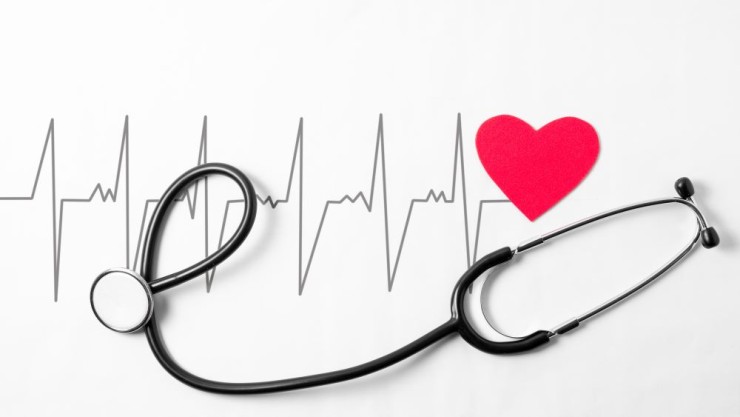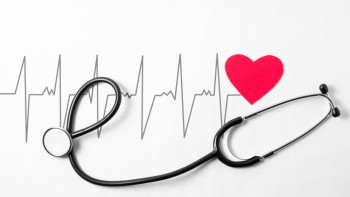
An ECG, also known as an Electrocardiogram or EKG, is a non-invasive diagnostic test that captures the heart's electrical activity over a specific duration.
ECG Test with Cost
Unveiling the Heart's Rhythm: A Comprehensive Guide
to ECG Tests
Introduction to ECG Test
An ECG, also known as an Electrocardiogram or EKG, is a non-invasive diagnostic test that captures the heart's electrical activity over a specific duration. This article aims to provide a detailed exploration of ECG, its significance in cardiac evaluation, and its various applications.
Importance of ECG in
Cardiac Evaluation
ECG plays a pivotal in cardiac evaluation by capturing the heart's electrical impulses. It provides crucial information about the heart's rhythm, identifies irregularities, and aids in diagnosing a wide range of cardiac conditions.
Types of ECG Tests
Different types of ECG tests cater to specific diagnostic needs. Resting ECG, Stress ECG, and Holter monitoring are common variants, each offering unique insights into the heart's function under varying conditions.
Preparation for an ECG
Preparation for an ECG is minimal but essential for accurate results. Patients may be asked to remove clothing from the waist up, as electrodes are placed on the chest. It's crucial to inform the healthcare provider about any medications or existing conditions.
Procedure Overview
During an ECG, electrodes are strategically placed on the chest, arms, and legs to record the heart's electrical signals. The test is painless and typically takes a few minutes. The resulting ECG waveform provides a visual representation of the heart's activity.
Components of an ECG
The ECG waveform consists of several components, including the P wave, QRS complex, and T wave. Each element represents a specific phase of the heart's electrical cycle, aiding healthcare professionals in assessing cardiac health.
Interpretation of ECG Results
Interpreting ECG results requires expertise in cardiac physiology. Abnormalities in the waveform, such as irregular rhythms or conduction issues, can indicate various cardiac conditions, including arrhythmias, ischemia, or myocardial infarction.
Common Indications for
ECG
ECG is commonly recommended for various indications, including chest pain, palpitations, shortness of breath, and as a routine screening tool. It helps healthcare providers pinpoint the cause of symptoms and guides further diagnostic and treatment decisions.
Advantages of ECG in Disease Diagnosis
The advantages of ECG extend to its ability to quickly and non-invasively detect a range of cardiac conditions. From identifying abnormal heart rhythms to assessing the impact of medications, ECG is a versatile tool in cardiac diagnostics.
Risks and Safety Measures
ECG is a low-risk procedure with minimal safety concerns. The adhesive electrodes may cause mild skin irritation in some cases, but serious complications are rare. Healthcare professionals implement essential measures to guarantee the safety of patients.
Comparisons with Other Cardiac Tests
Comparing ECG with other cardiac tests, such as echocardiography or cardiac MRI, underscores its unique role in capturing electrical activity. While other tests provide detailed structural information, ECG remains unmatched in assessing rhythm and conduction.
Innovations and
Advancements in ECG Technology
Technological advancements continue to enhance ECG capabilities. Mobile and wearable ECG devices, artificial intelligence applications, and remote monitoring contribute to more accessible and advanced cardiac diagnostics.
Patient Experience and Comfort
The ECG procedure is well-tolerated, with no pain involved. Patients may feel a slight discomfort when the adhesive electrodes are removed. The brief duration of the test ensures minimal inconvenience.
Follow-up Care and Recommendations
After an ECG, patients receive prompt results. Follow-up care may involve additional tests or consultations based on the findings, ensuring a comprehensive and personalized approach to cardiac health.
Case Studies and Success Stories
Real-life case studies and success stories highlight the impact of ECG in diagnosing and managing cardiac conditions. These narratives provide insights into the effectiveness of ECG in improving patient outcomes.
Expert Insights and
Recommendations
Leading experts in cardiology share their insights and recommendations on the evolving landscape of ECG technology. From best practices to ongoing research, their perspectives contribute to the continuous improvement of this diagnostic modality.
Conclusion
In conclusion, the ECG test remains a cornerstone in cardiac diagnostics, providing valuable insights into the heart's electrical activity. Its simplicity, speed, and diagnostic power make it an invaluable tool in ensuring heart health.
FAQs (Frequently Asked Questions) about ECG Test
Is an ECG painful?
No, an ECG is a painless procedure. The electrodes may cause mild discomfort during application and removal, but the test itself is quick and non-invasive.
Can ECG detect all types of heart conditions?
While ECG is excellent at detecting rhythm abnormalities, it may not identify all structural heart issues. Complementary tests may be needed for a comprehensive cardiac assessment.
How often should one undergo a routine ECG screening?
The frequency of routine ECG screenings depends on individual health factors and risk assessments. Healthcare providers determine the appropriate schedule based on medical history and cardiac health.
Are there any age restrictions for undergoing an ECG?
ECG can be performed on individuals of all ages, and there are no specific age restrictions. It is a valuable tool in assessing cardiac health across the lifespan.
Can medications interfere with ECG results?
Certain medications, especially those affecting heart rate or rhythm, may influence ECG results. It's crucial to inform the healthcare provider about all medications being taken to ensure accurate interpretation.
(0)
Login to continue
